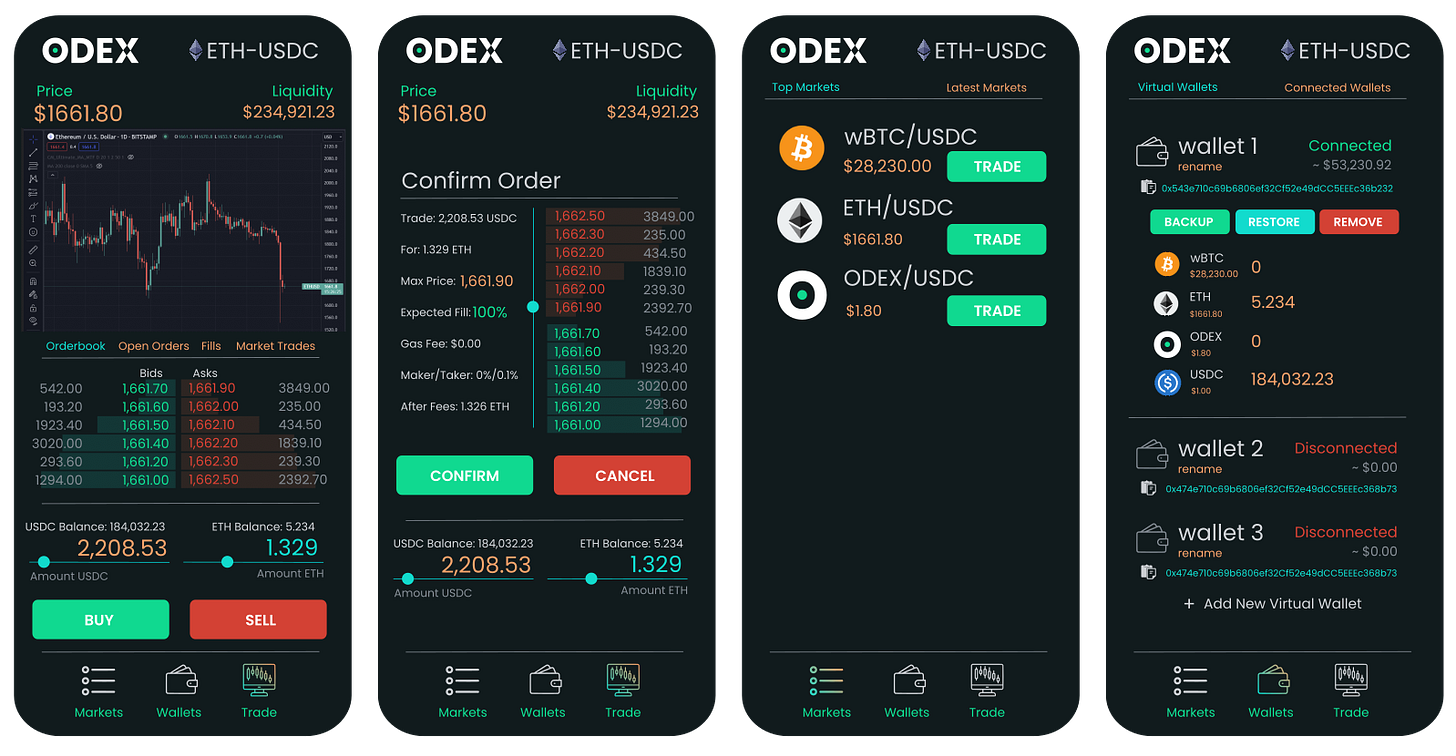The idea for ODEX is born out of a vision that Ethereum is evolving and that data is efficiencies will improve exponentially over the next few years. This opens up the opportunity to create a more efficient exchange model to what is currently available in DeFi markets.
Introduction
The pronounced evolution of Decentralized Finance (DeFi) has seen significant modifications from traditional transactional approaches. One of the most noteworthy changes was the adoption of Automated Market Makers (AMMs) that superseded the traditional limit order book exchanges. Uniswap brought about a new realm of user accessibility and efficiency in trading, primarily due to the constrains of the Ethereum blockchain that most DeFi projects and tokens nested in. High gas fees and slow confirmations have plagued users since inception, which resulted from the restricted block space and growing demand. The computational capability, made the operation of traditional limit order book exchanges highly impractical. Users wanted instant finality when paying $200 per transaction.
The Evolution of Ethereum 2.0 and Layer 2 Solutions
Ethereum is evolving at a brisk pace, with the forthcoming development of Ethereum 2.0, it is expected to metamorphose into a “chain of chains”. This combination of updates will increase the scalability and speed of the Ethereum network. Simultaneously, Layer 2 rollups are increasingly gaining traction amongst users. These solutions bundle several transactions into one, thus exponentially increasing data efficiency.
We have EIP4844 rolling out later this year which will add a cheaper temporary data layer to the Ethereum network. This can be used by rollups to post proofs at much lower costs. There is also a race in the zkEVM space to create the highly anticipated zero-knowledge layer 2’s.
The ultimate result of these developments is that decentralized data processing and storage is going to become much cheaper and much faster.
Opportunity for Limit Order Book Renaissance
Traditional finance use central limit order books (CLOB) because they are the best tool for the job. AMM’s solved issues that are now going away.
Such advancements alter the status quo, making the predicted obsolescence of limit order book exchanges moot. Limit order book offer many advantages over an AMM exchange:
Traders have greater control as they can specify the exact price at which they want to transact
Impermanent loss is not an issue for market makers and liquidity providers
Frontrunning and sandwich attacks can be mitigated
Slippage can be reduced and trading efficiencies can be improved
AMMs do provide benefits to user experience but these are rapidly becoming trivial as Ethereum evolves. As blockchain technology continues to improve it is paving the way for a renaissance of the limit order book model.




